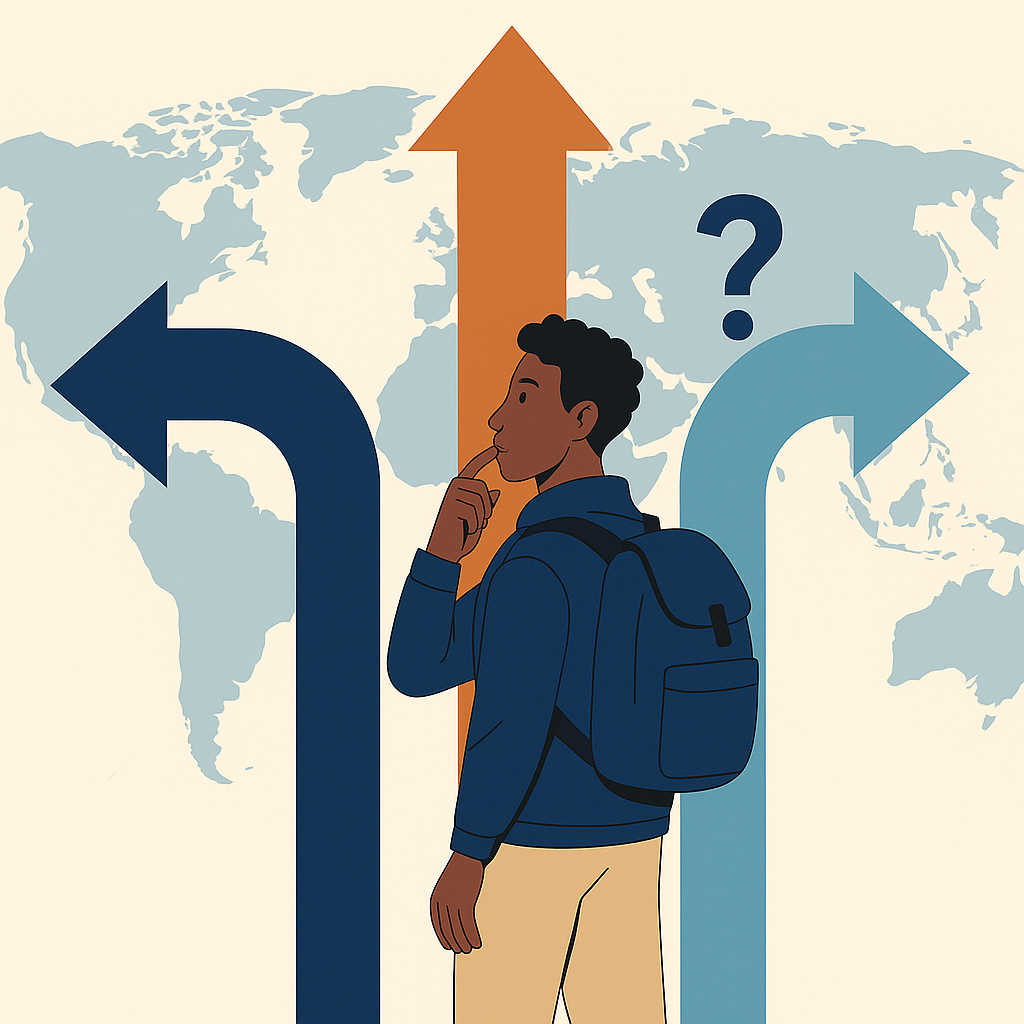Navigating Uncertainty: Recap of NAFSA 2025 and tips for International Students
In an unpredictable global landscape, international students are often the first to feel the tremors of political shifts and immigration policy changes. This year’s NAFSA 2025 Conference in San Diego brought over 8,000 education professionals together to confront those challenges head-on and find ways to move forward with resilience and collaboration.
Even as breaking news disrupted the conference agenda—including visa suspensions and policy changes under the Trump administration—attendees united around a shared purpose: protecting and advancing global education.
U.S. Visa Shocks Set the Tone
Just as the conference began, the Trump administration made two major announcements that deeply concerned the international education community:
Student Visa Interviews Halted
A pause on student visa appointments was announced, with officials citing expanded social media vetting as the reason.Increased Scrutiny on Chinese Students
The State Department pledged to "aggressively revoke" some visas and apply tighter controls on future applications from China.
These sudden policy shifts generated confusion, concern, and a flurry of urgent conversations. Yet, amid the noise, one thing was clear: international education leaders were ready to respond.
Resilience in the Face of Disruption
Rather than dwell in frustration, conference participants leaned into collaboration. One delegate described the atmosphere as “a group therapy session”—an honest, collective space to address fears and build strategy.
NAFSA CEO Fanta Aw emphasized the need for long-term partnerships based not on institutional prestige, but shared values. “Now is the time to double down on relationships,” she said—urging universities and stakeholders to come together with purpose and pragmatism.
Rethinking Global Student Mobility
This year’s discussions revealed a shifting tide in where international students are choosing to study:
The “Big Four” Destinations in Flux
While the U.S. remains a top destination, visa volatility is pushing students to weigh other options. Canada and Australia have faced their own immigration challenges, while the UK appears more stable—at least for now.Emerging Contenders
Countries like Ireland and Germany are gaining attention as affordable, high-quality alternatives for students navigating tightening visa environments.
The message: diversification is essential. Students and institutions alike are exploring more options than ever before.
A New Path Forward: Hope + Practical Advice
Despite the uncertainty, the tone at NAFSA was not one of defeat—but of action.
Educators, consultants, and advocates are sharing insights on platforms like LinkedIn, calling for smarter strategies and continued engagement.
If you’re a student wondering what this means for your future, here are four practical steps you can take:
✅ Stay Informed
Monitor visa news from trusted government and education sources. Knowledge is power—especially when things change quickly.
🌍 Explore Alternative Destinations
If studying in the U.S. feels uncertain, don’t be discouraged. Countries like Germany and Ireland offer world-class education and fewer visa hurdles.
🤝 Build a Support Network
Work with education consultants (like us!), connect with peers, and tap into student forums to stay connected and motivated.
📁 Be Documentation-Ready
Keep your records—transcripts, financial statements, test scores—organized and up to date. Being prepared can help you act quickly as policies shift.
You’re Not Alone—Let Us Help
At Elite Edvising, we know this can be overwhelming. But you don’t have to navigate it alone. Whether you’re reconsidering destinations, rethinking timelines, or simply seeking clarity, our expert advisors are here to guide you every step of the way.
Contact us today to talk about your options—and let’s turn uncertainty into opportunity.


